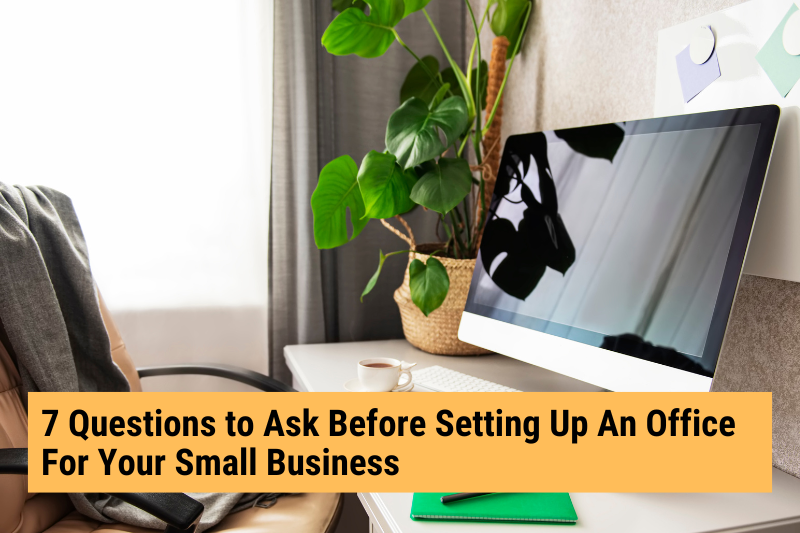“I have a problem.”
“But I don’t have the budget for a new hire!!”
As a small business owner, you’ve probably made these contradictory statements at some point or another. If you’re strapped for cash or aiming to use your money for a ‘bigger’ purpose (say to expand your operations or create a digital marketing strategy), then you might have to forego hiring that additional full time staff member.
But the problem doesn’t magically go away. You still need someone to help you resolve it. This is quite a common problem for small businesses.
The answer too is quite common – hire a consultant.
Consultants provide advisory services in many different business areas, such as corporate strategy, organisational planning, human resource/staffing, digital marketing, sales, etc.
But how do you select a good consultant? What are the qualities that determine whether you should hire a particular consultant over others?
It’s important to do your homework before making a decision, especially if you’re hiring a relatively unknown firm or individual.
Here are 5 questions to ask (and answer!) before you sign the dotted line!
1. What is their experience?
A good consultant is not necessarily someone with prior ‘consulting’ experience. However, it is critical that they have some ‘work experience’, especially in the area they’re consulting in.
Would you take a 21-year old life coach doling out life/career/relationship advice seriously? Probably not! Similarly, it makes no sense to hire a Marketing consultant with very little (or worse, zero) experience of Marketing.
When you talk to potential consultants to gauge their experience, ask them questions like:
- Have they worked on similar projects in the past?
- What was the outcome?
- How did their contribution solve a problem/improve a situation/bring success?
- Do they have any documentation?
2. What kind of expertise do they have?
Whether a consultant’s experience is more important or their expertise would depend on your industry, your organisation and the challenge you’re trying to solve.
You may need a consultant with expertise in a specific area (e.g. Organisational Design), methodology (e.g. Project Management) or even tool/platform (e.g. Salesforce CRM). That’s why it’s important to understand if they have the requisite expertise before you hire them. If a consultant says “No I don’t have THIS expertise but I will learn on the job”, don’t hire them. After all, the very reason you’re not hiring a full-time employee is because you don’t want to waste time or money in training them. And for this, a consultant who is already an expert is critical.
Questions to ask:
- Is their expertise broad (e.g. Marketing), narrow (e.g. Digital Marketing) or super-narrow (e.g. Social Media Marketing)?
- What kind of challenges have they solved in the past with their expertise?
- Can they provide references to support their claims?
- Can they provide a demo?
3. What are their educational/professional credentials?
Many consultants have graduate/post-graduate degrees in business or related fields. They may also be certified in some area of consulting, which will provide additional proof that they can operate according to your requirements regarding quality, timeliness, ethics, etc.
Ask about these credentials if they’re important to your area of business. For example, if you need a consultant to help you solve a Project Management challenge, you might be better off hiring someone with a professional qualification like PMP or Prince.
4. Do they have soft skills?
Regardless of their area of expertise, a consultant is likely to be successful at their profession if they lack ‘soft’ skills (aka people skills).
In addition to their technical and management skills, they must be able to:
- Convey their ideas and give advice
- Understand client inputs
- Proactively discuss business strategies, challenges and goals
- Help clients with decision-making
- Ensure proper information flow between various stakeholders
To do some (or all) of the above, they must have good communication skills. They must also be empathetic, emotionally intelligent and good at self-management.
To gauge their soft skills, ask open-ended questions like:
- Can you tell me about a time when you had to work with someone you were incompatible with?
- How do you cope with unplanned contingencies?
- What is your process for analysing a business challenge and designing a solution?
5. Do they understand your business?
A consultant who has the right experience, expertise, certifications and skills but doesn’t understand you is unlikely to be of any use.
Ask them questions like:
- Do you understand our work, industry and customer profile?
- What are the common challenges we face?
- What are the common trends in our industry?
- What are the standards, benchmarks and best practices?
A competent consultant should have solid answers to these questions. Based on their knowledge, they should be able to design tailored solutions for you.
Sometimes, hiring a consultant may be exactly what your company needs. By asking these five key questions, you’ll get the help you need as well as value for your money.











0 Comments